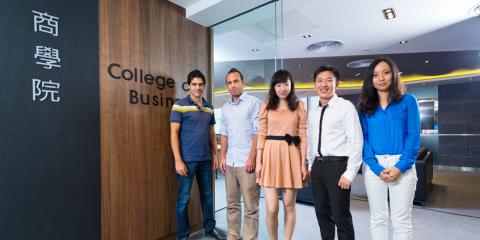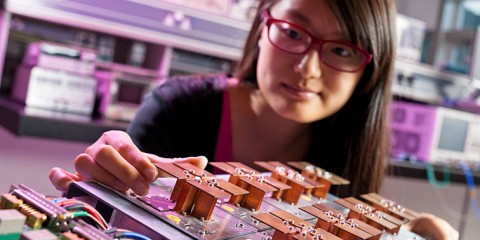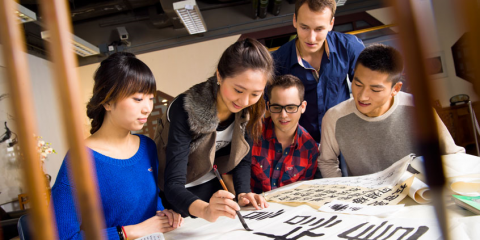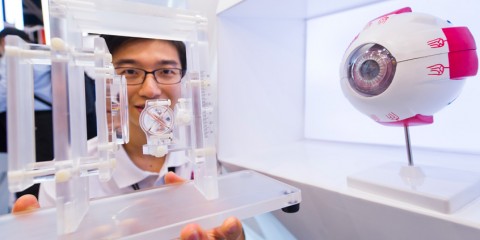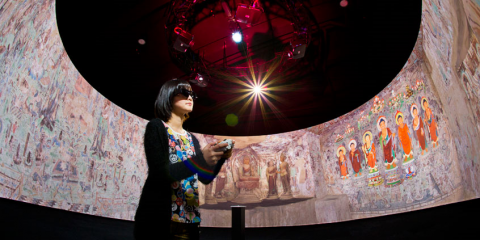Minimum Entrance Requirements
Applicants seeking admission to a research degree programme should satisfy the following minimum entrance requirements.
- Master of Philosophy (MPhil)
- hold a relevant bachelor’s degree with first or second class honours (or equivalent qualification) from a recognised university.
- Doctor of Philosophy (PhD)
- be a current MPhil student in the University who is seeking transfer to a PhD programme; or
- hold a higher research degree (or equivalent qualification) from a recognised university; or
- hold a Master’s degree (or equivalent qualification) from a recognised university; or
- hold a Bachelor’s degree with first class honours (or equivalent qualification) from a recognised university.
Equivalent qualifications mentioned above include relevant professional qualifications and other scholarly achievements recognised by the University.
Individual Departments and Schools may prescribe further entrance requirements in addition to the above.
English Proficiency Requirements
Applicants from an institution where the language of teaching is not English should satisfy the minimum English proficiency requirements specified by both the University and individual Colleges and Schools. The University’s minimum English proficiency requirement for research degree programmes is 550 (paper-based test) or 79 (Internet-based test) or 59 (revised paper-delivered test; sum of Reading, Listening and Writing section scores) in the Test of English as a Foreign Language (TOEFL) OR an overall band score of 6.5 on the International English Language Testing System (IELTS). Equivalent qualifications are also acceptable.
In addition to the University’s requirement given above, the following Colleges and Schools set higher standards or equivalent acceptable qualifications, as appropriate for their disciplines:
- a minimum total score of 550 (paper-based test); or 79 (internet-based); or 59 (revised paper-delivered test; sum of Reading, Listening and Writing section scores) in TOEFL; or
- a minimum IELTS score of 6.5; or
- other test scores that may be regarded as equivalent to TOEFL 550 (paper-based) or 79 (Internet-based) or 59 (revised paper-delivered test).
(A high score in GRE or GMAT with supporting proof will be an added advantage, although this is not mandatory. Please note that individual Departments in the College may adopt higher standards.)
- a minimum total score of 550 (paper-based test); or 79 (internet-based); or 59 (revised paper-delivered test; sum of Reading, Listening and Writing section scores) in TOEFL; or
- a minimum IELTS score of 6.5; or
- other test scores that may be regarded as equivalent to TOEFL 550 (paper-based) or 79 (Internet-based) or 59 (revised paper-delivered test); or
- a minimum score of 490 in the Chinese mainland’s College English Test Band 6 may be accepted.
(Please note that individual Departments in the College may adopt a higher standard.)
- a minimum total score of 550 (paper-based test); or 79 (internet-based); or 59 (revised paper-delivered test; sum of Reading, Listening and Writing section scores) in TOEFL; or
- an overall band score of 6.5 in IELTS, with a minimum of 6 for each of the sub-categories including Listening, Reading, Writing and Speaking.
(The College-specific English Proficiency Requirements for admission 2019 are being reviewed, which will be updated in due course. Please note that individual Departments in the College may adopt a higher standard.)
- a minimum total score of 550 (paper-based test); or 79 (internet-based); or 59 (revised paper-delivered test; sum of Reading, Listening and Writing section scores) in TOEFL; or
- a minimum IELTS score of 6.5; or
- other test scores that may be regarded as equivalent to TOEFL 550 (paper-based) or 79 (Internet-based) or 59 (revised paper-delivered test); or
- a minimum score of 490 in the Chinese mainland’s College English Test Band 6 may be accepted.
(Please note that individual Departments in the College may adopt a higher standard.)
- a minimum total score of 550 (paper-based test); or 79 (internet-based); or 59 (revised paper-delivered test; sum of Reading, Listening and Writing section scores) in TOEFL; or
- a minimum overall band score of 6.5 in IELTS; or
- other test scores that may be regarded as equivalent to TOEFL 550 (paper-based) or 79 (Internet-based) or 59 (revised paper-delivered test); or
- a minimum score of 490 in the Chinese mainland's College English Test Band 6 may be accepted.
(Please note that individual Departments in the College may adopt a higher standard.)
- a minimum total score of 550 (paper-based test); or 79 (internet-based); or 59 (revised paper-delivered test; sum of Reading, Listening and Writing section scores) in TOEFL; or
- a minimum IELTS score of 6.5; or
- other test scores that may be regarded as equivalent to TOEFL 550 (paper-based) or 79 (Internet-based) or 59 (revised paper-delivered test).
- a minimum total score of 550 (paper-based test); or 79 (internet-based); or 59 (revised paper-delivered test; sum of Reading, Listening and Writing section scores) in TOEFL; or
- a minimum IELTS score of 6.5; or
- other test scores that may be regarded as equivalent to TOEFL 550 (paper-based) or 79 (Internet-based) or 59 (revised paper-delivered test).
- a minimum TOEFL score of 580 (paper-based) or 92 (Internet-based); or
- a minimum overall band score of 7 in IELTS; or
- a score of 520 in the Chinese mainland’s College English Test Band 6.
(Take note that the School has stipulated a validity period of three years for results of the above tests. Thus, only test results obtained within three years immediately preceding an application to the School of Law, will therefore be considered valid.)
Medium of Instruction/Assessment and Thesis Presentation
The normal medium of instruction and assessment at CityU is English. Research students should write and present their theses in English.
